Your cat has not lost interest—it’s just doing an emotional disappearing act with precision timing.
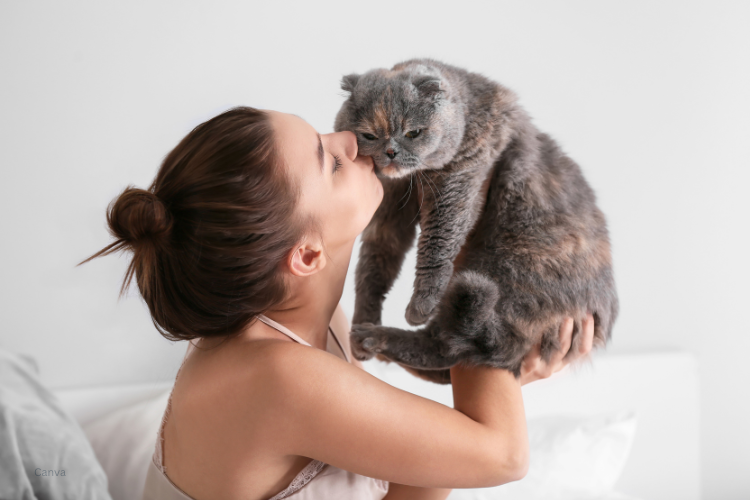
It’s easy to think your cat is ignoring you. One day they’re curling up on your chest, and the next, you’re left feeling like a needy ex. You try calling. Bribing. Offering treats like a desperate negotiator. Still nothing. Then suddenly, out of nowhere, they’re back—acting like you were the one who disappeared. If your cat seems like it’s running on its own mysterious schedule, that’s because it is. They’re not being rude. They’re just playing by rules that only make sense to them.
But don’t mistake independence for indifference. Cats don’t just vanish because they don’t care. Their behavior is layered, calculated, and weirdly consistent once you understand the reasons behind it. Here are ten solid explanations for why your cat seems to pull off a Houdini act anytime it pleases—and why it’s almost never random.
1. They’ve claimed a secondary sleeping kingdom and refuse to share the coordinates.
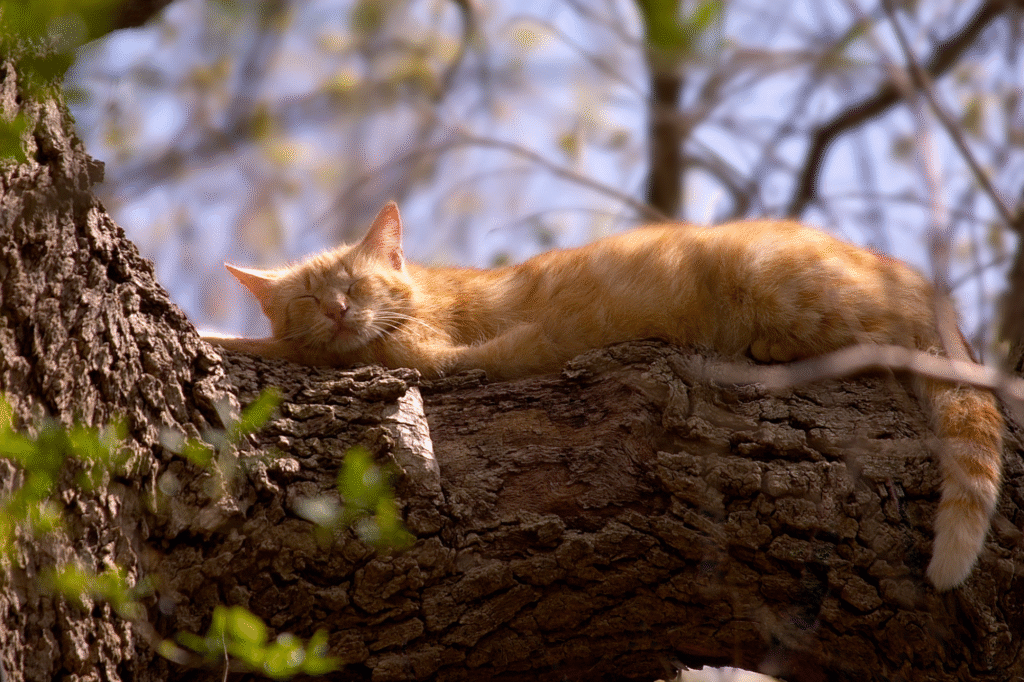
Cats are borderline obsessed with changing sleep locations. Just when you think you’ve figured out their favorite nap spot, they go off the grid like a seasoned spy. One day it’s your lap. The next, they’re gone for 14 hours, only to emerge yawning from the depths of a linen closet no one’s opened in a month, according to Hyperfavor.
It’s not personal. It’s security. Cats instinctively rotate sleeping locations to stay safe from perceived threats—even if those threats include literally no one but the family vacuum. They like enclosed, elevated, or out-of-sight spots that offer control over exits and a full view of the area. Lap time is fine for brief warmth and bonding, but when they want real sleep, they retreat to places they control.
This habit satisfies a primal instinct. Staying predictable in the wild meant becoming prey. By rotating nap zones and disappearing often, they stay in control. That includes occasionally vanishing from your schedule entirely.
2. They know your energy before you’ve even opened your mouth.

Cats have an unsettling ability to read moods, as reported by Catster. Not in a general way—but in a hyper-tuned, you-just-had-a-bad-Zoom-call-and-now-they’re-under-the-bed kind of way. They don’t need to hear you vent or see you flop on the couch. They pick it up from your body language, your breathing, and even the way your footsteps change when you’re irritated.
When they sense tension, they often disappear. Not because they’re mad. Because they don’t want to be in your emotional blast radius. It’s not avoidance out of spite—it’s self-preservation. You might feel abandoned, but they’re just giving you space to recalibrate without making it about them.
Once your energy resets, they’ll often reappear without a fuss. It’s not a guilt trip. It’s just their quiet way of managing the emotional climate without escalating it. They’re not cold. They’re cautious. And sometimes, that means retreating like a tiny, whiskered monk until your vibe settles down.
3. Their routine includes private patrols you were never invited on.

Your house might feel predictable to you, but to your cat, it’s a territory filled with shifting smells, subtle changes, and corners that need regular inspection, as stated by Reveal Pet Food. They go on daily rounds—quiet, solo patrols through hallways, behind furniture, along window sills, and sometimes inside cabinets you didn’t know they could open.
This isn’t restlessness. It’s maintenance. Cats are wired to monitor their space. They don’t invite you because these routes serve a very specific sensory purpose. They’re checking for new scents, objects that moved, and small disturbances that you probably don’t even register. A moth wing behind the bookshelf? Investigated. That box you left by the door? Scanned and judged.
While you’re scrolling your phone thinking your cat vanished, they’re halfway through a security sweep of your bedroom closet. It’s not antisocial. It’s instinct. When they vanish, they’re just clocking in for work—without the office politics.
4. You made the mistake of changing something, and now they’re on protest.
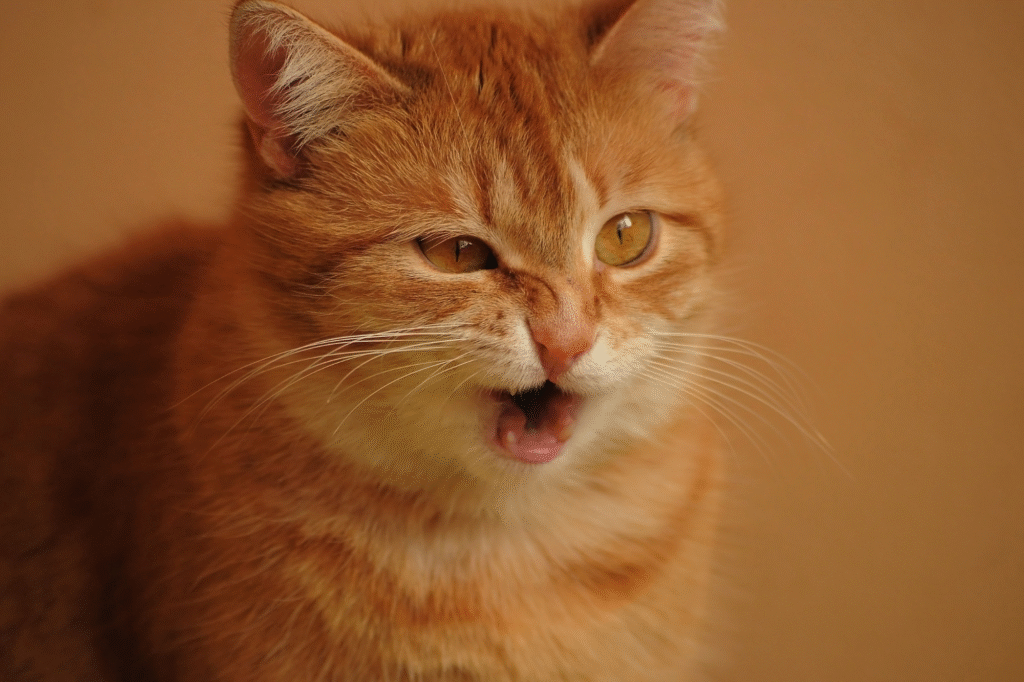
Cats thrive on predictable environments, according to Cats.com. Change, even minor stuff—new candle scent, different laundry detergent, the absence of a plant they usually rubbed against—throws off their internal sense of control. And when things feel off, their first move is often to retreat.
They’re not overreacting. They’re recalibrating. By disappearing, they’re figuring out how the environment feels now that something has shifted. They may not even avoid you directly—they’re avoiding the room where things feel unfamiliar. And if the change is you? A new shirt or your weird mood from that late-night documentary binge? They’re processing it from a distance.
Give them time and space. They usually reappear once they’ve deemed the new variables non-threatening. But don’t expect an apology for the dramatic exit. In their mind, you were the one who changed the vibe. They just temporarily removed themselves from the equation.
5. They’re overstimulated and trying not to lose their cool.
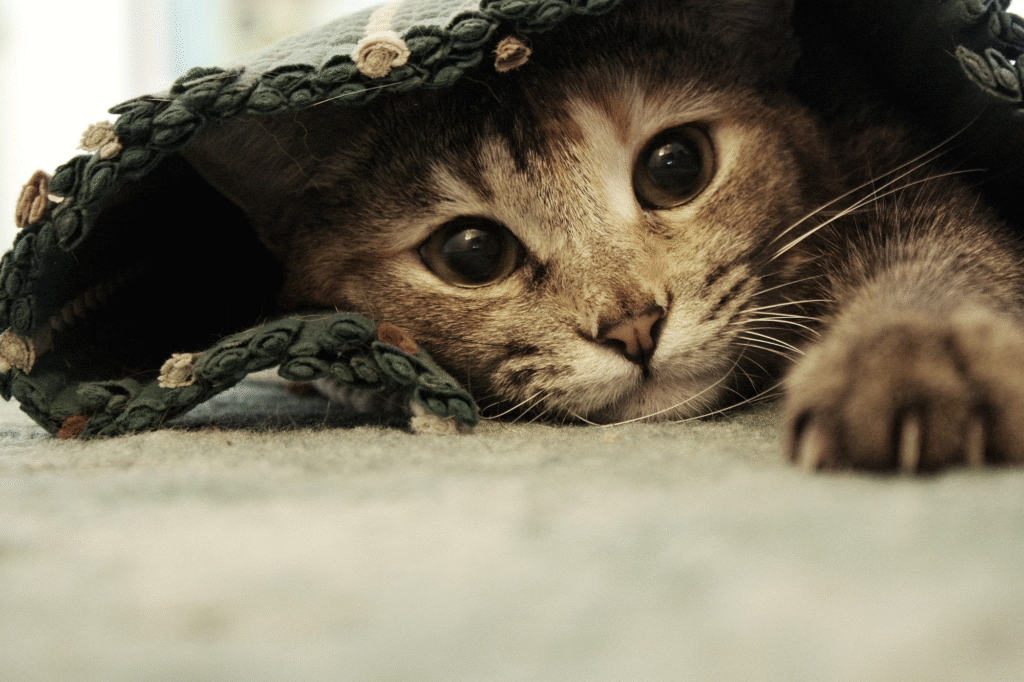
Too much petting, too many sounds, too many smells. It doesn’t take much to tip a cat from relaxed into sensory overload. And they’re not going to throw a tantrum or yell. They’ll just remove themselves, vanish into a quiet corner, and hit the reset button in solitude.
The trouble is, they often tolerate overstimulation right up until their limit. You think everything’s going fine—then poof, they’re gone, not even a backwards glance. This is especially true in multi-pet households or during chaotic moments like house cleaning, loud TV, or guests moving through the house like a parade.
By disappearing, they’re doing you a favor. They’re avoiding snapping or swatting. They’re decompressing instead of lashing out. That time alone isn’t a snub. It’s self-regulation. When they’ve recharged, they’ll resurface like nothing happened—cool, composed, and ready to test the limits all over again.
6. The warmest spot in the house moved—and they followed it.
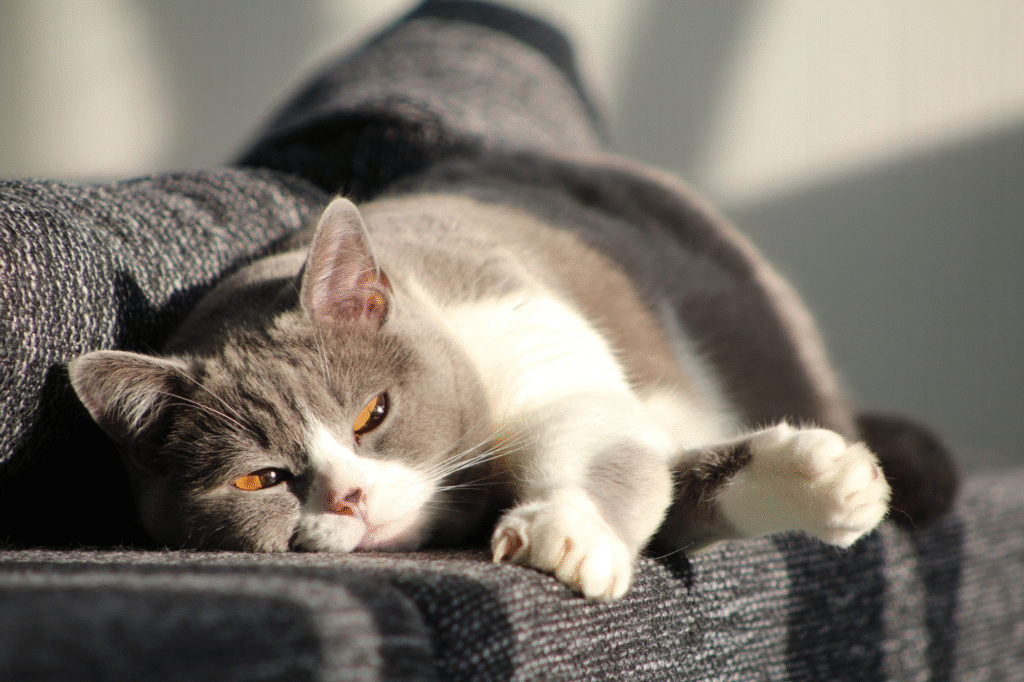
Your lap was their favorite place… until the sun shifted. Cats aren’t sentimental when it comes to heat. They will absolutely leave you mid-cuddle if they realize there’s a sunbeam on the hardwood floor across the room. Warmth is currency, and they chase it like it’s their job.
Sometimes that warm spot is a sunny window ledge. Other times, it’s the laundry fresh from the dryer or the top of the fridge where the air vent runs. They aren’t being rude. They’re being efficient. You may feel replaced, but from their perspective, they just made a practical upgrade.
They’ll come back—once your lap regains prime real estate status. Until then, you’ll probably find them stretched out in a heat-trap somewhere, looking smug and unbothered. Don’t take it personally. You’d do the same thing if your body temperature ran three degrees higher than a dog’s and you didn’t have a thermostat.
7. They’re guarding their secret stash and don’t want to be followed.
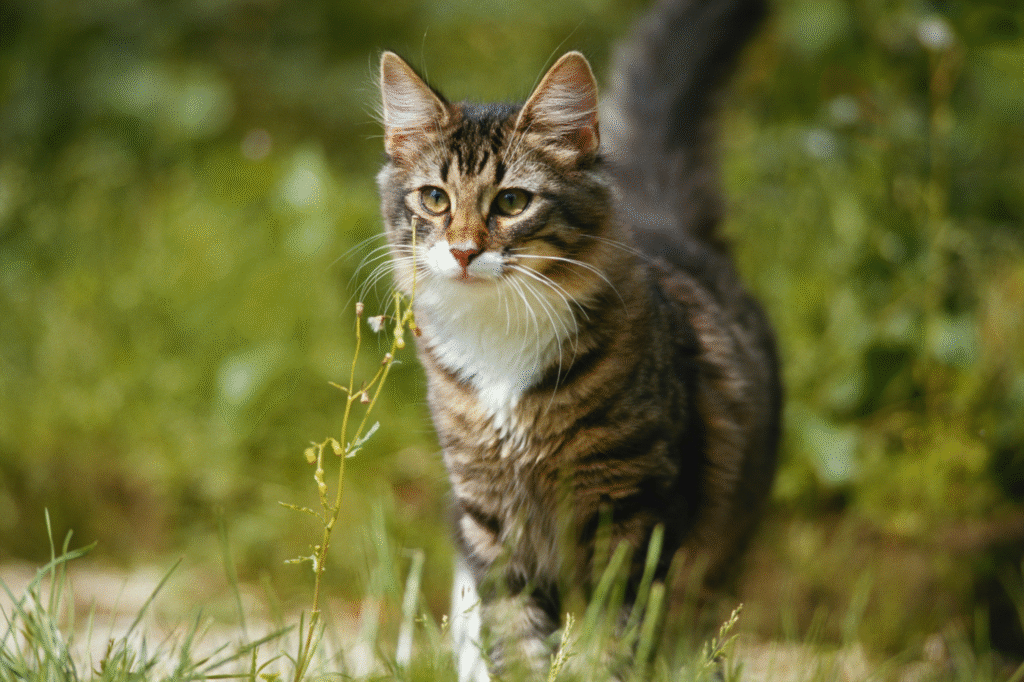
Every cat has a stash spot. It might be a sock under the couch, a feather toy they think is real prey, or a chewed-up twist tie they decided is now emotionally significant. And when they disappear suddenly, it might be because they’re retreating to their hoard like a dragon guarding gold.
This isn’t playtime. It’s preservation. They relocate items that matter to them—whether for scent, sound, or texture—into safe zones where you, the clumsy human, can’t ruin the vibe. You’re not invited. In fact, if you try to follow them or reach into the spot, they’ll act like you violated a sacred pact.
It’s not just about objects. It’s about control. That hidden corner gives them ownership, solitude, and a tiny kingdom to rule without interruption. When they ghost you for hours, there’s a chance they’re simply hanging out with their stuff, not thinking about you at all.
8. A minor health issue has them hiding quietly instead of asking for help.
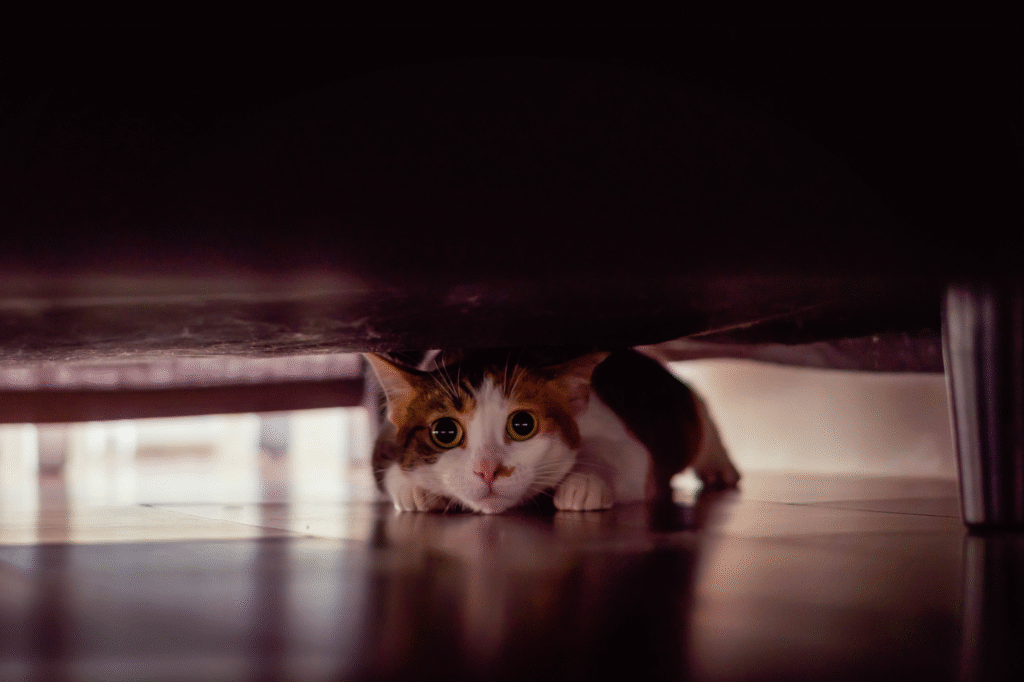
Cats don’t broadcast pain. They bury it. If something feels off—whether it’s an upset stomach, a sore tooth, or just fatigue—they often retreat and go quiet. You might think they’re being antisocial. In reality, they’re trying to handle things on their own, in the most undetectable way possible.
This behavior comes from their ancestry. In the wild, showing weakness meant attracting predators. So cats evolved to mask discomfort, isolate themselves, and wait it out. That’s why one of the first signs of a medical issue is usually a subtle withdrawal. Less lap time. Less eye contact. More hiding under furniture.
If your cat suddenly avoids you more than usual, don’t assume it’s a mood. Check their eating, litter box behavior, and general movement. Their disappearing act might be physical, not emotional. And catching it early can make a massive difference in how fast they bounce back.
9. Their territory needs guarding, and you’re not part of the plan.
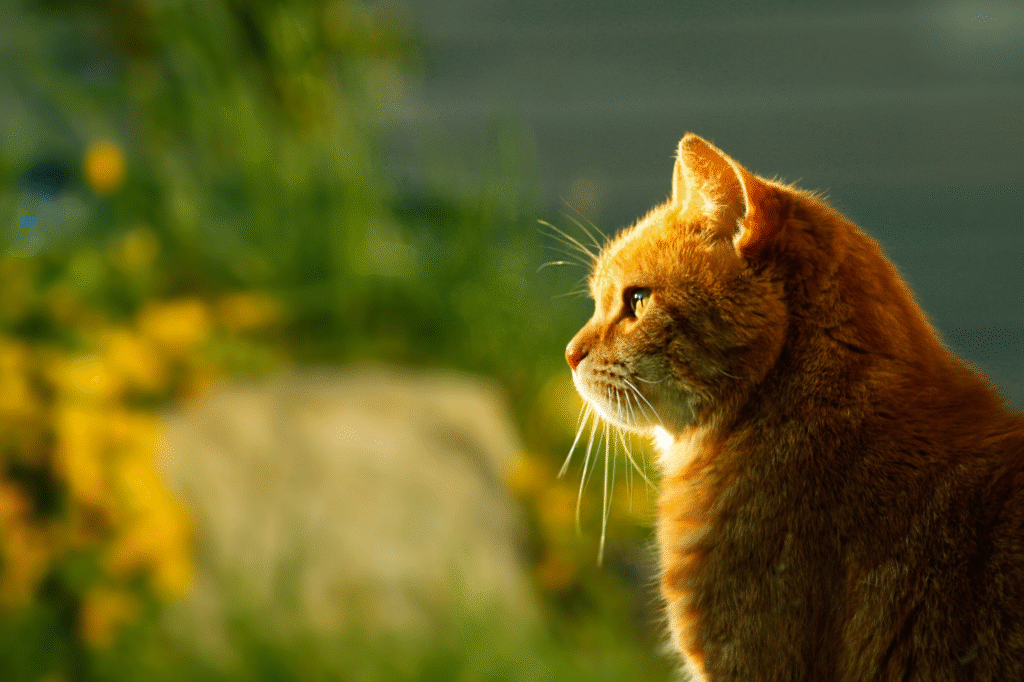
Your home feels like a place to relax. Your cat sees it as a zone to patrol, manage, and occasionally defend from phantom intruders. This includes that hallway you never use, the garage corner with all the spiders, or the top shelf of the closet they somehow climbed into without you noticing.
When they vanish for long stretches, it’s often part of their routine surveillance. They’re checking their space, reclaiming scent zones, or simply perching somewhere they feel in control. You’re not excluded out of meanness. You’re just not necessary for that particular task.
Sometimes they station themselves somewhere strategic—behind a curtain or near the front door—just to monitor the flow of the home. You won’t even know they’re watching. But to them, it’s essential work. When they’re gone, they’re not bored. They’re busy. And that’s what gives them that signature confidence you envy.
10. They’re reminding you that affection is their idea, not yours.
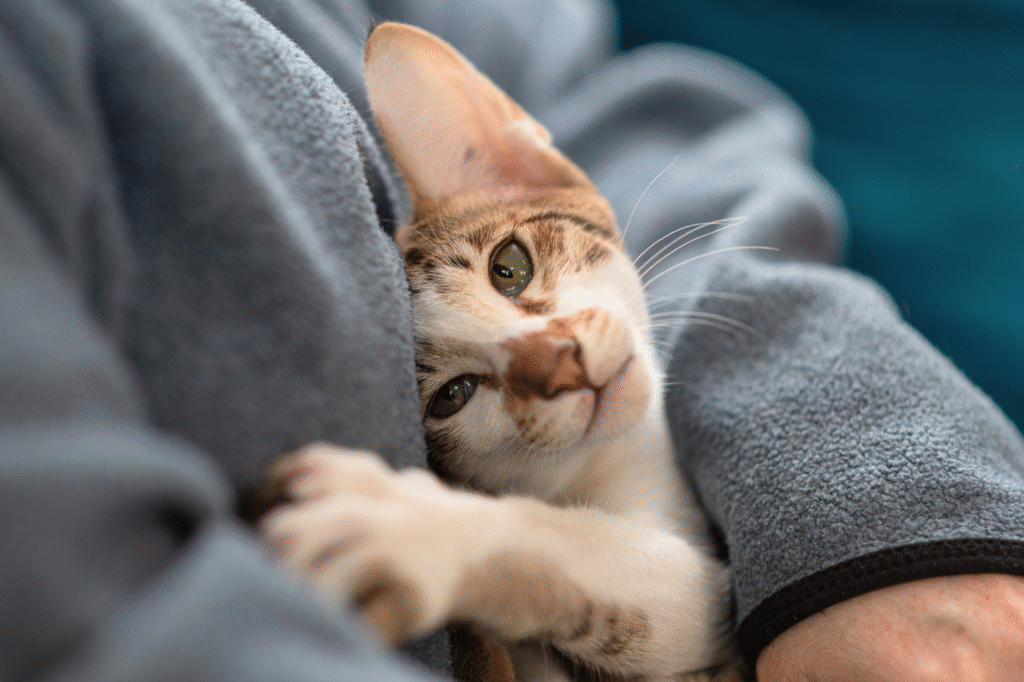
The hardest truth to accept as a cat person is this: you’re not the one in charge. You don’t schedule the affection. You don’t dictate cuddle times. You’re there to provide availability, and your cat chooses the moments that suit them. Disappearing is part of the contract. It reinforces their autonomy.
Sometimes it happens right after a seemingly perfect bonding moment. One minute they’re headbutting you like you’re best friends. The next, they’re gone for six hours, no explanation, no callback. That sudden drop-off isn’t rejection. It’s rebalancing. They need distance to feel like they’re choosing you again the next time.
When they come back, it’s not because they missed you. It’s because the vibe is right again. That’s how cats maintain control in a world that’s always shifting around them. They don’t run on obligation. They run on instinct. And disappearing once in a while is their way of staying in the driver’s seat.
